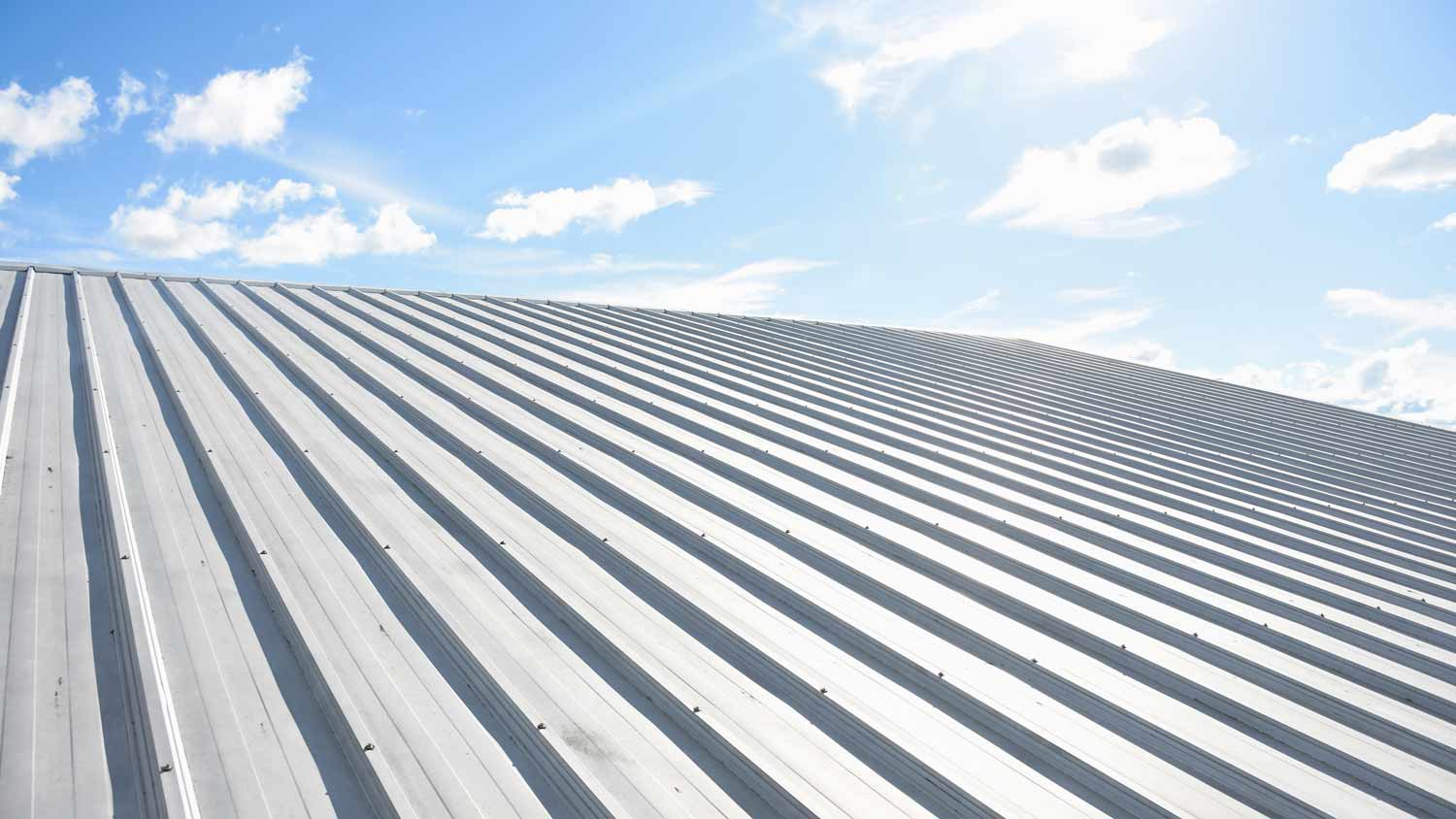
Discover the most significant factors regarding aluminum roofing cost to help you make informed decisions about your investment in one for your home.


Metal roofing is typically sold in panels, which come in various sizes.
To know how many metal roofing panels you'll need, find your roof's area.
Metal roofs typically cost between $4 and $30 per square foot.
If it's time to give your roof an upgrade, you may be asking, "How much metal roofing do I need?" Metal roofing is typically sold in panels, which vary in size. Use this metal roofing calculator to find out how many panels will be enough to cover your home.
Use the square footage of your roof divided by the coverage area of a roofing panel to determine how many you'll need.
| Roof Area (Square Feet) | Panel Coverage Area (Feet) | Metal Roofing Panels |
|---|---|---|
| 1,000 | 2x12 | 42 |
| 1,500 | 2x12 | 63 |
| 2,000 | 3x16 | 48 |
| 3,000 | 3x16 | 63 |
| 3,000 | 3x20 | 50 |

Based on the size of your roof, use the following formula to find out how many metal roofing panels you'll need:
Metal Roofing Panels Needed = Total Roof Area / Area of One Metal Roofing Panel
Measuring your roof can be simple or more complicated, depending on whether the roof itself is simple or complex. You'll need to find out the length and width of each roof plane.
Measure the length and width of each plane, then multiply them together to get the square footage of the plane. Next, add together the square footage of each plane to get the total area of your roof.
For example, if your house has a simple gable roof, it has two roof planes. A gambrel roof has four planes. A hip roof also has four planes, but two of those planes are triangle-shaped. To calculate the area of a triangular plane, multiply the base of the triangle by its height, then divide by two.
Roofing installation or repair isn't a DIY job. It pays to know who fixes roofs or replaces them entirely. Typically, a local professional roofer, one who's licensed and insured in your area, is the person to hire for the job.
A pro roofing contractor can measure the roof for you and calculate the number of metal panels your project requires. They'll also provide you with an estimate of the project's cost, so you can decide if installing metal panels is the right option for your home and budget.
From average costs to expert advice, get all the answers you need to get your job done.

Discover the most significant factors regarding aluminum roofing cost to help you make informed decisions about your investment in one for your home.

Wondering about the cost to tarp a roof after a large storm or before a major roof renovation? We'll break it down by size, style, and scenario.

Metal shake roofs offer a long-lasting alternative to asphalt shingles. Learn what metal shake roofs cost and what factors affect how much you’ll pay.

If you've decided to skip the shingles, what type of roof tiles are the best for your home? Let's weigh the pros and cons of each popular type of roof tile on the market.

With so many different types of roofs, it’s important to know the pros and cons of your roof’s style. Learn about 14 common roof types and how they measure up.

Understanding the styles and types of metal roofs available can help you make the best choice for your home. We’ll discuss the best options for metal roofs.